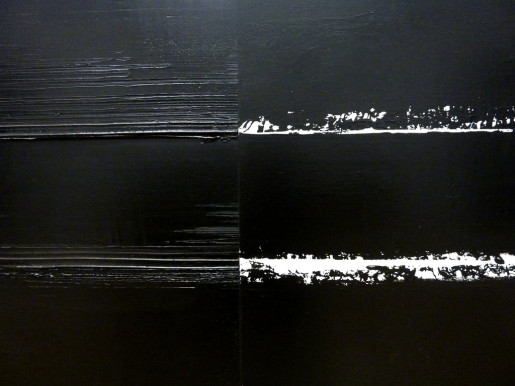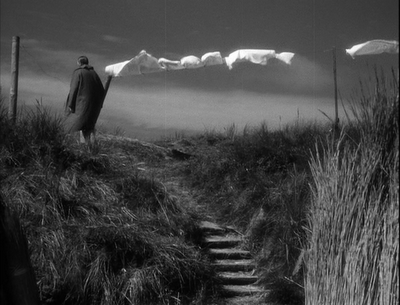
Muqi Fachang,, 1200s Song Dynasty
“The more laws that are written, the more criminals are produced.”
Tao Te Ching
Lao Tzu
“Doctors are no doubt correct in warning us not to touch wounds; and I am presumably taking chances in preaching as I do to a people which has long lost all sensitivity and, no longer conscious of its infirmity, is plainly suffering from mortal illness. Let us therefore understand by logic, if we can, how it happens that this obstinate willingness to submit has become so deeply rooted in a nation that the very love of liberty now seems no longer natural.”
Etienne de la Boetie
The Politics of Obedience
“Clear water all the way to the bottom;
a fish swims like a fish.”
Master Dogen
13th century (tr.Kazuaki Tanahashi)
There is a long article in the current Harpers by Adolph Reed, but I cant afford to read it, so I have to wonder if that irony is lost on Reed or not.
Still, there is a very fascinating interview Thomas Frank did with Reed at Salon. And among the points made has to do with the loss of labor identity, culturally and as community.
“FRANK: The labor movement. You said to reverse all this, it requires a “vibrant labor movement.” How on earth is that going to happen? Actually I’ve made this point to progressives and they don’t understand. They’re like, “What’s so special about labor?”They don’t particularly like labor. Culturally, it’s not them. They don’t really get it.
REED: They like their workers when they’re brown and really abject and getting the shit beaten out of them but they don’t like them when they try to work through institutions to build power for themselves as a class. That’s one way to put it.”
The affulent white liberal and increasingly corrupted left, in the US and UK, dont identify with labor. In Hollywood all union themes are nostalgic, and period. Labor is nostalgic. Work today is either sentimentalized or idealized. The poor are happy and simple. And the attention economy, the harvesting of time and the uses and circulation of image have given work the appearance of leisure. Or rather leisure IS work.
“FRANK: Obama’s a highly intelligent man. You’ve met him.
REED: Yes.
FRANK: Maybe he’s a cipher in the sense that he’s a symbol. But he’s not a cipher of a human.
REED: I don’t know. Look, I’ve taught a bunch of versions of him.
FRANK: You mean you’ve had people like him as students?
REED: Yeah. So his cohort in the Ivy League. His style. There’s superficial polish or there’s a polish that may go down to the core. I don’t know. A performance of a judicious intellectuality. A capacity to show an ability to understand and empathize with multiple sides of an argument. Obama has described himself in that way himself in one or maybe both of his books and elsewhere. He’s said that he has this knack for encouraging people to see a better world for themselves through him.
FRANK: Yeah, he’s like a blank slate.
REED: Right. Which in a less charitable moment you might say is like a sociopath.”

Pierre Soulages
Most everyone can see the ideological seepage. Obama belives (as Reed points out) that the best students should be taken out of the ghetto or barrio and put in special schools rich people attend. The remaining poor, those not identified as special, can just fuck off, essentially. This is really a return to feudalism. And it is increasingly accepted as a reasonable idea. For increasingly the goal is, as Reed says in different words, the sharing of privilege. If Condi Rice as Sec of State is seen as progress for women’s rights, the Obama is seen as this, too, for racial equality (though of course Lyndon Johnson and Nixon gave more to the poor and to minorities than Clinton or Obama) then perception has eclipsed reality and become its own reality. In fact, its really the structural imperatives that reinforce this stratification. And its marketing. The selling of gentrification, and elitism as favorable, and the underclass as pathological and criminal.

Trayvon Martin’s ‘hoodie’ entered into evidence at Zimmerman trial.
The affluent class, the same ones who like their causes distanced from themselves, also are comfortable with the sending of troops (US military troops) on missions of “caring”. They won’t volunteer for the military, but they love to fawn over ‘others’ in the military, almost all of whom are poor. Send them, let them go fix Ukraine (fix US interests and prop up a fascist government). Let them rescue those poor (but not so attractive) women in the rape camps in Bosnia (even if they never existed). When Clinton plundered Haiti, that was ok, that was familiar because that is how they treat their own gardners and maids.
One of the things that strikes me, in light of, for example, this: http://www.deathandtaxesmag.com/216667/that-viral-20-strangers-kiss-for-the-first-time-video-is-just-trying-to-sell-you-clothes/
The response of many was only to reaffirm that they “enjoyed it”. Even if its ersatz, fake and manipulation …. this really no longer matters for many. The events in the Ukraine, obviously orchestrated by the U.S., is met with confusion by many on the left, because almost without realizing it, their training in reading history is shaped by TV and film. The formal Open Letter to the EU, signed by such ghouls as Bernie Kouchner, Zizek, and arch reactionaries like Tim Garton Ash and Adam Michnik, is representative of this weird false memory. http://euobserver.com/opinion/122880 It is enough to see ‘people’ in the streets. Oh, our Hollywood implanted sense of protest means we are on the side of these ‘people’, never mind history, the US state department and CIA, or even fascists openly backed by the U.S. in the service of IMF, WB, and Chevron. If one cannot read the video of paid models kissing for what it is, then how can one read more complex matters, more complex images?

Example of Kintsugi, the art of repair. (Listeningtoleaves blog)
Today’s aesthetic education assumes (as I’ve said before) a certain idea about ‘reality’. And art is seen to be predicated upon volition. And this idea of volition exists outside history, or individual relations to material and means of production. It is simply there, apriori. It is connected to varying and changing notions of ability. This was the result, mostly, of Alois Riegl, but of Lipps, too, but of Worringer, and Wolfflin, and a great many others. And missing in this is mimesis. I don’t want to sidetrack too deeply into this, but only to point out that there is a general sort of assumption (which dates back two hundred years) that prior to the decision to create a work of ‘art’, there is the same universal impulse, and that it has a relationship, however vague, to nature. And increasingly, this culture sees the past in light of, and as if it were the same as the present. The past is just the present with different styles. Anachronisms are not read as anachronistic anymore. But its deeper than that, of course. It is that aesthetics are linked to a common sense idea of nature, as its been handed down (and increasingly commodified and marketed) and with this idea of volition, and of ability and skill. I forget who used the term “a dread of space” (maybe Joseph Frank) but much critical art writing and theory appeared in reaction to the rise of abstraction on the 20th century. And one of the truisms about abstraction, at least from, say, Pollock onward, was that this was an art about ‘surface’. I suppose this is the influence of Greenberg, and Harold Rosenberg. And while I think this is wrong, one would have to really sit down and explore what one means by ‘surface’. Rosenberg actually contested the Greenbergian notion of Ab Ex as concerned exclusively with surface, and insisted, rather, on the idea of the act, of a certain expression of chance and training (like Japanese calligraphy) that come together in a moment of awareness.
It is this awareness that is the creating of space. Abstract expressionism has always been mis-perceived because of Greenberg, mostly, but also by a lot of those artists following after Rothko, Pollock, and Kline.

Todd Hido
“An empty space is marked off with plain wood and plain walls, so that the light drawn into it forms dim shadows within emptiness. There is nothing more. And yet, when we gaze into the darkness that gathers behind the crossbeam, around the flower vase, beneath the shelves, though we know perfectly well it is mere shadow, we are overcome with the feeling that in this small corner of the atmosphere there reigns complete and utter silence; that here in the darkness immutable tranquility holds sway.”
Tanizaki
In Praise of Shadows
In Japanese aesthetics a key concept is yugen, or mysterious beauty, and sabi, the veil of history or antiquity. The dualism of the West is not addressed in another way, it actually doesnt even come up as a topic. Sabi is the quality of aging well, the creation of a patina or even rust on objects, which then take us back in reverie to our past, and to our ancestors. It is connected in one way with the tea ceremony, with the beauty of insufficiency. This also leads back to the idea of calligraphy, which under Confucian influence in Japan (in the 1700s, the Edo period) what had been simply called the ‘art of writing’, became Shodo, or ‘way of writing’, meaning a meditative practice. I actually called this blog The Practice of Writing, with this in mind. Calligraphy as the indexical embodiment or expression of dharma, not simply part of a message pointing toward dharma. In a sense, for the medieval Zen teacher, each brush stroke was a self portrait. And it was about practice. I hope to return to a long posting sometime soon on No drama, because I feel somehow one of the keys to reimagining theatre lies within practices that dispense with the decorative, and mediate the idea of recieving a message. A key concept of Zen aesthetics is makoto, or natural sincerity.

Gautier de Metz, 13th century manuscript page

Ryoan-ji Temple, Kyoto
In corporate cultural product today, there is what Adorno called a “narcissistically self-staging positivity…”. It is the art of the ego. A shreiking self advertising ego.
“The growing relevance of technology in artworks must not become a motive for surbordinating them to that type of reason that produced technology and finds it continuation in it.”
Adorno
Instrumental reason, today monopolizes everyday thought and experience, and language. Metaphors are created by reference to technology, and there is no vocabulary for genuine practice, and by extension there is no appreciation not funneled through the prism of technological categories. Appreciation is shaped by the audience’s growing sophistication in recognizing technological limits and in their recognition of a societal profit driven ethos taken as fixed in nature. And this internalizing of a techno model is what (partly anyway) leads to a culture of ‘fans’. There has evolved an intermediary step in the process of viewing the world, or interpreting all narratives, and that step is this new specialized appreciation of the characteristics of the system. In other words, there is an audience who are made to feel, encouraged to feel, like insiders who can judge — with great cyncicism — the process of profit making. On the flip side there is an utter blindness to the reality of their own exploitation. This culture seems not to mind, consciously anyway, that the ownership 1%, or 2%, have made their fortunes by naked theft and supression of individual human rights.

Flavor of Green Tea Over Rice; Yasujirō Ozu dr. 1952
The valorizing of power, of brutality, has led to the erasure of humility. The spectacle presents a narrow self serving brutality as if it were an inner strength. Humility is weakness, forgiveness is weakness, and compassion is simply a pathology. Compassion is presented again and again as if it were an aberrant condition in need of medication. One of the things I’ve noticed, repeatedly, in popular culture is a basic refusal to accept apology and the witholding of forgivness. Forgiveness must be, almost magically, *earned*. The default setting is always to withold forgiveness, resulting in the cessation of considering it, the subject knows it will not be forthcoming, so the knee jerk reaction for mistakes is to double down, to make bigger more selfish mistakes or actions. And of course selfishness is not a problem.

Ordet, Carl Dryer dr. 1955
Selfishness only becomes a problem, if it does, if it is accompanied by failure, by losing. It strikes me that the ascension of irony and snark has eliminated even the discussion of sincerity. And this elimination is reflected in secondary ways, in the basic construction of image and narrative. The fragmented and unfinshed or interrupted narrative is easy to cast aside sarcastically, because injury, emotional wounds are perceived as weakness. Audiences increasingly sense not to invest, not to watch too carefully, because so little pays off in corporate product. On the personal level of kistch psychology, hurt feelings can be navigated — sometimes — but the admission of deeper emotional relationship to culture, to art, is sneered at and ridiculed. In fact, ANY deeper concern for the creative tends to be ridiculed. One aspect of this is the hyper masculine (the brutal masculine) presentation of self that is so valorized. Where once the lonely cowboy, emotionally witholding, who liked the company of his horse better than family or wife, has become the sadistic and violent vigilante, the uniformed psychopath, the professional assassin. Writers and filmmakers as varied (sort of) as Neil LaBute, David Mamet, Zach Snyder, Clint Eastwood, Stephen Bochco, and David Milch et al, are also all prone to expressions of crass sentimentality. That sentimentality is often fused with jingoistic patriotism and a Norman Rockwell level cherishing of ‘family’. But these are fantasy constructions of family and country. Speilberg, that avatar of Reagan era white values, and his progeny like Joss Whedon, Vince Gilligan and J.J. Abrams, have repeated the tropes perhaps first ushered in way back with Frank Capra. The palatte of American kistch expression of family owes a lot to Capra, Walt Disney, and Speilberg.
On another track it is useful to look at the careers of Tarantino and the Coen Brothers. This is the subsumption of counter culture expressions of dissent. And this goes back to Harold Ramis again, too. The contrarian posture was co-opted by social critics such as Zizek, but also in the nerd white guy culture of Zuckerberg and about a dozen film school graduates and children of nepotism (Sofia Coppola comes to mind) who churn out the reactionary and very white hipster product in which contrarian or oppositional is expressed through a face lift re branding of racism and mysogny. Racism in Ray Bans and an ironic haircut.

Tang Yin, 1420 Ming Dynasty
To be oppositional now means to embrace the previously rejected values of the far right. Niall Ferguson is the Oxford version of this, and Zizek the critical theory (as clown show) version. That all of this is horribly infantile and often just factually wrong is never a problem, because the instrumental values of technology, the belief in progress, and the revanchist stance on race and gender are fused with snark, sarcasm, and historical amnesia. Racism isn’t the problem, anti racism is the real racism. Patriarchal hegemony isn’t the real problem, feminism is the new hegemony. And on and on. The need for the ‘new’ fuels this endless almost scatter shot revisionism for the new fashion collection for Spring needs novelty. Facts are for sissies.
Reed says in his essay that the U.S. is left with a choice “between two neoliberal parties, one of which distinguishes itself by being actively in favor of multiculturalism and diversity and the other of which distinguishes itself as being actively opposed to multiculturalism and diversity. But on 80 percent of the issues on which 80 percent of the population is concerned 80 percent of the time there is no real difference between them.”
The branding of race. Race as a style question. In favor of multiculturalism means what? For most of white America the question of race operates as a cosmetic indicator of lifestyle choices.

Yagi Kazuo, 20th century ceramic
The question of race hangs over this discussion, at least in terms of the U.S. like a toxic mental cloud of methyl isocyanate and white phosphorus that eats into every discourse. It actually encloses all the values of white gentrification culture, of arch irony, insincerity, and trust in authority. Race is outside the intellectual gated community of white affluence. Curiosity is bracketed away much as humility and compassion. A totalizing positivism. Self staging.
Bruce Levine wrote a pretty sharp piece here: http://www.alternet.org/story/151850/8_reasons_young_americans_don%27t_fight_back%3A_how_the_us_crushed_youth_resistance And it cant be over-emphasized, I don’t think, the role of both student debt AND psychiatric medication. There is no more NUMB country in the world. No country that on a simple biological level, ‘feels’ less. So to tick off the boxes: Heavily medicated, afraid due to constant fear producing propaganda, fear because of being in debt (either student debt, mortgages, or just business failure), loss of autonomous thought, the ability or inclination to think about resistance, to meditate on their own existential condition. A marketed snideness that would make fun of existential philosophical questions. Reflection itself has been bartered away for the latest iPhone or high resolution brain scan…er….computer screen. Fear of the police. Full stop. The police today are simply objects that elicit fear.
Reason #3 for Levine:
“Schools That Educate for Compliance and Not for Democracy. Upon accepting the New York City Teacher of the Year Award on January 31, 1990, John Taylor Gatto upset many in attendance by stating: “The truth is that schools don’t really teach anything except how to obey orders. This is a great mystery to me because thousands of humane, caring people work in schools as teachers and aides and administrators, but the abstract logic of the institution overwhelms their individual contributions.” A generation ago, the problem of compulsory schooling as a vehicle for an authoritarian society was widely discussed, but as this problem has gotten worse, it is seldom discussed.
The nature of most classrooms, regardless of the subject matter, socializes students to be passive and directed by others, to follow orders, to take seriously the rewards and punishments of authorities, to pretend to care about things they don’t care about, and that they are impotent to affect their situation.”

Maynard Dixon
In the same way that the institutional authorities have domesticated the wild, regulated camping and even walking in National Parks, so has the intellectual landscape been narrowly regulated and stringently enforced. A majority of Americans will see a wilderness landscape and imagine a place to drive dune buggies or ATVs, or dirt bikes. There is a default setting that all nature needs is a mechanical application of some sort applied to it. Again, aesthetic reflection tends toward the anti authoritarian analysis.
Jean Genet wrote about theatre; “As to the audience, only those would come who knew they were capable of a nightime walk in the cemetary to be confronted with a mystery…if such a location were used…writers would be less frivolous, they’d think twice before having plays performed there. They might accept the omens of insanity, or of a frivolity bordering on insanity.”

Bada Shanren, 1600s
I think the theatre of the dead is a perfectly sane idea. In fact theatre IS about the dead, not the living. A performance in crypts, atop graves, would, no doubt, cause outrage. But why? Such dialogues, such discourse, is forbidden in today’s west.
There was a famous essay, which appeared in Cahiers du Cinema, titled Blind Man and The Mirror, The Impossible Cinema of Douglas Sirk. Written by Jean-Louis Comolli. It hinted at, and pointed toward, some ineffable and delicate transcendent quality that Sirk managed to create in the midst of overwrought melodramatic scripts. Tag Gallagher wrote;
“Imitation of Life was Sirk’s biggest success and last commercial film. He had been all but ignored during his career and was resurrected only a decade after it by tiny yet earnest coteries scattered around Europe and America. If his most famous apostle was Rainer Werner Fassbinder, his most Pauline apostle was Jon Halliday, whose interview, Sirk on Sirk (1972) – one of the greatest film books ever – reappeared in Sirk’s centenary year 25 percent longer and ten times better.” There has been, at least since Godard first waxed enthusiastic in 1959, in an early Cahiers piece, something in Sirk that brings out the language of devotional practice and ecclesiastical metaphors. I bring up Sirk here, after Ozu because if I put aside my personal favorites, of films that meant something personal and special to me, and really seperate the very most elite cinema, the impossible, those that achieve something outside conventional analysis, I think I am probably left with maybe only four, at most five, films, or directors, who have reached this ‘impossible’. One is Bresson, and one is Dreyer, and one is Ozu. These are the holy triumverate that Paul Schrader wrote about in his influential and very smart book Transcendental Style In Film. I would add Rossellini, at least the Rossellini of Louis XV, and Blaise Pascal. I would add Pasolini, of Gospel According to St Matthew. And Fassbinder, in Year of 13 Moons, and certainly in Berlin Alexanderplatz. That might be it. Mizoguchi maybe. Maybe. There are others that suggest but never quite realize the spiritual; the best of Welles, and Von Sternberg, and Eisenstein. Que Viva Mexico is certainly a talismanic masterpiece of unfinished fragments. The best of Hitchcock should be considered. And revisiting those odd auteurs whose body of work was small, Clarance Brown for one. When I first started to seriously watch films, with Terry Ork in New York, and the bible was Sarris’ American Cinema, we went to at least three films a day. There were small private film clubs, and there were triple bills on 42nd street. It was all we did. Well, almost all, but thats another story. People came to blows over Tay Garnett and if Sarris was right about his inconsistency. Or if Ford’s master shots were better than Hawks. And everyone read Cahiers. There were debates late into the night on the merits of Edgar G. Ulmer, and Blake Edwards, on Tashlin and Preminger. But nothing was ever snide. Nobody was anything but serious. I mention this personal memory because sometimes I wonder how a culture of such seriousness has so completly disappeared. There was politics, too, and it was taken as a given that radical revolutionary thought was an indispensible part of the fabric of the search. A search for revelation. Nobody really worked. I had odd jobs, working for a small rare book dealer on Greenwhich St. I catelogued W.H Auden’s library. Most of his books were ancient history and I remember the pleasure of just handling these books, smelling them, feeling them. I ended up never being paid for that job, but I didn’t care.

Roberto Rossellini, on set of Blaise Pascal, 1972
There is something elusive, and hard to pin down in the Rossellini, and this despite the paradoxical intentional ‘realism’. Its an almost meta naturalism. Fassbinder felt Sirk to be his greatest teacher. And in some sense, Berlin Alexanderplatz is his most Sirkian film, though many are overtly refrencing Sirk. In Dreyer, it is purity. Simply a chaste gaze, and Bresson follows upon this, that looks to create religious alters of clarity. If the brushstroke of Edo Period samurai monk/calligraphers is spiritual autobiography, then perhaps Sirk is that paradoxical cinematic monk. Dreyer is the Lutheran abbot, and Pasolini, the homosexual union organizer, a Marxist Jesus. In each case, though, and I guess this is my point, there is mokoto. Sincerity. But actual sincerity. Kierkegaard said something to the effect that we never know when we are being sincere. Perhaps. But I suspect that is artistic practice is involved, here.

Statue, English Cemetary, Florence Italy. (Ed Snyder photo)
Creating space, for reflection, seems crucial. It is interesting, Genet in that same essay I believe, said it took endless time to finish Brothers Karamozov. He would read a page and sit for an hour. He also called theatre rehearsals ‘trials’. Rehearse, conduct the trial, atop a crypt. Say what cannot be said in any way in any other place.
A few weeks ago a grad student, a young woman, argued with me about something, but at the end she challanged my reading of this particular thinker, and said, ‘but there are hundreds of professors who agree with me’. I thought about that. Where does such craven obedience to title come from? The answer is, it is the lesson of school today. One lesson, all the time, OBEY. In an odd way, I come back to Unions. Without a culture of unions, the psychological make up of the working class is damaged. Perhaps thats the most obvious sentence I’ve ever written, but let me explain further. Its not just the economic protection, job security, and such, but its the sense of being cared for. The sense your neighbor is cared for. And his neighbor. Others, others are protected and looked after, and even if unions were corrupt, that sense of belonging and pride is gone now. Students who attend school today, whose parents work shit jobs, temp jobs, humiliating jobs, are not going to enter school without carrying a lot of anxiety. Shit, you enter school with anxiety in the best of all worlds. Today, you enter more afraid. More anxious. And less willing to argue. In High School they must pass through metal detectors. Armed guards roam the halls.
People will debate this to a degree, citing movements off the radar. But honestly, those are small, not large movements. They are great and they often accomplish a lot more than their numbers would predict, but, there is no sign of mass mobilizing. What there is, is a sign of mass confusion, mass acceptance of propaganda, and mass fear.
And in plain sight of everyone, the growing underclass of the U.S. Disproportionately black and latino, the growing numbers of working poor, of homeless families and of hunger are impossible to miss, even from the back seat of your Range Rover or Lexus SUV, through your tinted windows, with your GPS in front of you.
Fear. Fear of ridicule. Fear of drawing attention to yourself in the age of mass surveillance, and fear of punishment. The U.S. public clings to the belief that the world operates like a movie. The narrative they follow is one constructed by, largely, the U.S. government. This is not fantasy, it’s fact. This was obvious as far back as 1977 (thanks to Molly Klein for this reminder).
http://www.carlbernstein.com/magazine_cia_and_media.php
And running alongside the master narrative are films that each year lurch further into pure totalitarian kitsch. The loss of sincerity, of humility as a product of deep practice is anethema to the corporate culture industry. Sincerity is vulnerability, it is the deep strength of a practice not designed to ‘work on yourself’, but to work on the world.
A glimpse of how disconnected are the very rich can be found here: http://www.rollingstone.com/culture/news/bill-gates-the-rolling-stone-interview-20140313?page=2

Jeff Wall
I close with this piece on the mental health industry. And below that, one of Kuniyoshi’s prints that I used as a model for a tattoo that the great Greg James did on my left leg at the old Sunset Tattoo.
http://www.truth-out.org/news/item/22266-psychiatry-now-admits-its-been-wrong-in-big-ways-but-can-it-change

Kuniyoshi, early 1800s.

great post as usual
a lot of thngs i want to ask about but frist this puzzles me
“FRANK: The labor movement. You said to reverse all this, it requires a “vibrant labor movement.” How on earth is that going to happen? Actually I’ve made this point to progressives and they don’t understand. They’re like, “What’s so special about labor?”They don’t particularly like labor. Culturally, it’s not them. They don’t really get it.
REED: They like their workers when they’re brown and really abject and getting the shit beaten out of them but they don’t like them when they try to work through institutions to build power for themselves as a class. That’s one way to put it.”
The affulent white liberal and increasingly corrupted left, in the US and UK, dont identify with labor.”
so what is this? its like they are assertingbecause white progressives in the culture industry and academia they know don’t like labour, labour can never achieve anything,,there can never be a labour movement with strength again/ Why? why does the working class need these white petty bourgeoisie’s solidarity andnlove? and why are frank and reed so incessantly interested in those ppeople in their supposed love of brown people _(really?? or is he just trying to pathologiize and demonize antiimperialism y characterizing people in solidariy with palestine for example as people who donts like labour? is this valid? why do neither of these guys ever ooffer any eviidence oo bakkc up these remarks? yes they “feel” true …we’re all forced to say oh yeah those disgusting white progressives who love brown suffering people and hate white people. Really? sure there are white bourgeois who hate white workiin people but are these really the antiimperialists who are ebign accused of some pathological sadistic unhealthy perverted love for brown people?
This sounds like Tom Wolfe honestly, whose job as a reactionary was to slander the com symps,the fellow travellers with influence, like Leonard Bernstein, and to shame that sort of committment and assistrancel, to break those alliances….
I know so many white culture workers and I hear all of those calling themselves left saying this same thing, that white culture woorkers love brown suffering people and hate white workers. But i never met those people they are talking about who are supposed to be the majority in every environment i ever worked or lived in.
I agree with you Molly, it’s one of those tropes that white regressives pull all the time that actually only exist in imagination.
To Reed’s defense though, I don’t think he’s trying to say the same thing, in context. I think instead his point is more like “affluent white ‘progressives’ can take the working class as victims, but the moment they start having independent self-sufficient organization the same ‘progressives’ will dislike them as being uppity and not knowing their place, etc.”
Yeah, I’ve been posting this same article around because Reed really nails a few things about left-progressives and identity politics – the addiction to “bearing witness” as a political act…the fixation with the purity of powerlessness…the politics of recognition as opposed to redistribution…all the easy choices and willingness to dispense with egalitarianism and solidarity in return for feel-good posturing…his is why the era of identity politics coincides almost exactly with the arrival of the new gilded age and the astonishing concentration of wealth…
That said, I think he gives short shrift to the international nature of capital flows that are undermining American labor…and the increasing mechanization of manufacturing…maybe because these factors make the problem seem even more intractable.
Love reading Genet on Karamazov – great stuff…
@exir….correct, thats how I read it. Its fine to feel concern when brown and black workers are being abused….but if they actually reach a level where their organizating grants them potential influence and power they are not so appealing. So I certainly didnt read Reed (sic) as saying they can never achieve anything, quite the contrary. Its been my experience that liberal white progressive dont identify with labor. Its not who THEY (white liberals) are…..they dont see labor that way. Its a ’cause’ when black and brown labor are getting the shit kicked out of them, but not so great when policy, labor policy, and more, starts being effected by organized labor…..and in particular black and brown labor. I dont think Reed said anywhere they hate white workers. They semi-hate all workers…which is again, my experience. But they like abject black and brown labor…its a salve to support them. As Exir says, they make fine victims.They are less likely to support them when those same formally black and brown workers reach levels of power. I probably didnt edit that exchange well enough. But he doesnt say anything about hating white workers. They …white progressives, culture workers, liberals, et al………distance themselves I feel, from all labor. Thats certainly been my experience. Talk to people in hollywood about the taxi drivers union…..good luck. Mostly they’ll complain taxi drivers are incompetent and drive too fast. And Reed is saying the opposite actually. They CAN achieve things ….which means they exist as a sort of existential threat to the affluent white liberals.Thats the point.
Personally, @guy……….yeah that genet material ….from a few places….his odd interviews and fragments are just amazingly great. And right, the purity of the powerless……..makes great protest fodder , just make sure they dont start to have power….
” I think instead his point is more like “affluent white ‘progressives’ can take the working class as victims,”
I guess I want to know why Reed would expect these affluent white progressives – that is the bourgeoisie, that is the class enemy — to allly with the working class. If they did it would all be over no? But he too is the class enemy of the working class and the weakness of his clas traitor commitment to socialism appears here in his conviction that how the bourgeois culture workers feel about the working class will make or break the working class’ prospects in class struggle
“But they like abject black and brown labor”
What does this mean they like them? The white bourgeois progressives in the imperial core are almost incessantly killing tblack and brown workers (they perform the cruciall propaganda and managerial functions ). Killing and immiserating non-stop.
I agree with Amirir Baraka about Reed…he is the least offensive of this camp but he is one of these post-race intellectuals who reallu downplays imperialiism and comes at his crude abstract insistence on class which is actuallly the absence of any class analysis whatsoever (this is why he can stage his puzzlemennt that the bourgeoisie is not ready to assist the working class to overthrow them) through this denial of imperialism and its _necessary_ gloval caste and genre hierarchizing
“Talk to people in hollywood about the taxi drivers union”
Sure but what I have seen no evidence of is these people’s love of black and brown workers
ok, Im confused.
I dont think he (Reed_) expects them to be different than they are.
And nowhere does he say the opinions of the white bougeoisie is what will make or break the workers movement. Youd have to show me where he says that.
Well, as for killing them. We’re talking at cross purposes here. I hope. Not all black and brown workers are killed. The liberal white class, the affluent class, democrats “like” their black and brown proletariet to be victims. If they like them at all, but I think thats the idea really that drives shit like 12 years a slave, an endless paternalism. They are disposible. And they are increasingly, as is the poor in general, a problem surplus, only partly solved by prison.
I guess we disagree about Reed. I dont love him, but I certainly thought what he said about labor was correct. The dismantling of unions has had long reaching affects. And this also plays out in the arena of Spectacle, which is what I was writing about mostly. Now, these people “love” blk and brn enough to elect a black president…….because he represents their interests more than he does black america, or poor in general. They “love” black culture workers, they love their maids and gardners….and cooks…which wont stop them from killing them if need be, but that doesnt preclude the presentation of this post race america fantasy, in which Imperialism and militarism is buoyoed up by that cruise missile left that demands we kill enemies of empire in the name of compassion and meanwhile just adore our maids. To actually support unions, for example, white and black and brown unions, wont happen because to grant any agency to workers of any color is not allowed. Especially black and brown workers. But….they certainly make use of the symbols of victimhood.. To deny that is a bit strange. They dont love ANY workers in truth. They vote against all workers rights and benefits. But the enclosing of race has meant that opposition is absorbed in this paternalistic narrative (no child left behind, charter schools, etc among other things). Questions of bias in race are neutralized paternalistically. Angelina jolie standing with samantha power and helping build a solitary school house in a country ravaged by US military aggression proves this love. They love their victims, they are necessary props. Which is what I took Reed to be saying. They are fine with the symbols ….when those symbols reinforce the weakness and powerlessness of the minority worker, and poor in general. They do love that, they find it the cover for further colonial adventures. So, i guess we need to define the word ‘love’..which i dont think Reed used actually.
What he said was “They like their workers when they’re brown and really abject and getting the shit beaten out of them but they don’t like them when they try to work through institutions to build power for themselves as a class”.
And thats right. They are fine with the workforce being in need of their largesse. Their help. Their guidance. But when organized labor demands are on the table, they will vote every time for ownership. THATS what i took the point to be. Nowhere does he even imply the white bougeoise is *needed*.
Yes you right I am reading the cliche he is evoking when he says ‘they like their workers brown and abject” the suggestiing being they dont like them when not brown as well as not abject
or is reed suggesting brown workers are just always abject?
i dunno. the issue for me is why is this digression into lacerating thi stereotype of Reed’s unappealing coolleagues the answer ti a uestion about how can a “vibrant labour movement” ever happen (again)? Who’s nostalgia is on display here?
an this
http://www.progressive.org/mag_reed1107
strange that he didn’t mention it might be good to vote for McKinney and Clemente? Is it he wwas afraid of seeming to love an abjject brown working class? You would think from that article that there was not only no one to vote for Presidentbut that there was no real leftist organizing going on around the election and utilizing it as a lever for trying to build a real opposition. Pundits like Reed were essential in disappearing those efforts, in limiting them; they run intereference. The “leftist” comment on the eection in the Progressive for example was all about Reed’s snarking and NOTHING about what the actual concrete politially advanced US working class was doing. Indeed he all but declares they do not exist. It was because of the disciplined service to power of Reed and the rest of the nominally far left pundits with mainstream access that McKinney Clemente didn’t get the near 10% they could easily have achieved had Reed and his fellows not been exactly the kind of bourgeois intellectuals he claims to deplore, that spend their time sniping at eachother and acting like that’s Lefist Infighting and the only story to tell in the mainstream prog press.
I mean sure this stereotype that was invented by Tom Wolfe of th e ppaternalistic patronizing whatever whatever has some kerbal or truth to it but why is this the only thing Reed ever wants to discuss? Write these peopel off/ They hhave nothing to do with the working class politics he claims to champion. Why doesnt he write about the actual working class and their activity if he is any more interested in that, in proomoting and assisting that, than his targets? He ends up on Henwood’s show all the time and he never seems to mind that Henwood is a racist — he dutifully laughs loudly at Henwood’s racist jibes. Real struggle and real radical politics are beneath his notice. It”s alll this easy eyeball psychological explanatiion…Really yes of course Obama’s Hostroic Presidence was one element of the propaganda but ;;et;’s not exaggerate. Bush wasn’t really that much better. Clinton wasn’t that much better. White men in power aren’t so wonderful. It doesn’t actuallly hellp disarm the propaganda machine by harping forever on Obama’s decoy ppersona as iif his blackness was itself a danger and things would only be back to democractic status quo ante 911 if some white member of the establishmennt got the white house back,And this is where Henwood and Reed go in their chattery sarcasm fests where they identify their enemy as anyone who recognizes the iimportance of racism to capitalist empire but who also doesn’t confiidne their opposition to racism to the awareness that “it hurts white people too!” as if tha was the only thing that can make racism wiorth fiighting agains
Im not defending Reed ad hoc. In toto. Whatever. Im saying I think he was correct in what he said, and what I quoted. I dont think he is saying either of the two things you suggest. He might mean that, but its not what he said.
And its not a cliche, I dont think. I mean the problem is,
“all that leftist organizing” is something Ive been pondering. Others have argued this with me. yes there is organizing and work going on. But ….man……….not all that much, frankly. I guess my perception has been that the leftist organizing takes various forms, all of which have problematic components, and none of which end up not being exclusionary in some sense. And its depressing. Union membership in the US is 7%.
But true, regarding clemente or mckinney or even jill stein………anyone but the dem or repubs. Anyone. But I will agree, in the end, Reed suffers from much of what he criticizes others for doing. That said, I shall await further actions. Maybe he is waking up. People do.
And left infighting is sadly true. Its not the only story and its a story that is exploited endlessly…that IS true. But its not exactly invented out of whole cloth.
‘They are fine with the workforce being in need of their largesse. Their help.’
okay but
A) who is fine with this and where is this evidence of help? I dont see the white bourgeois progressives helping the most devastated vulnerable people (in Congo, in Palestine) indeed they are grinding the boot down. And those who are on the rescue vessels to Gaza or debunking the imperial lies about central africa cannot and should not be accused of this patrionizing and contemptuoous attitude that Reed and posse want to smear them with
B) isn’t it Reed himself and Frank complaining that the white progressive bourgeoisie is denying workers their largesse and help? Aren’t they attributing too this white boureois refusal of help and patronage the inabiilty of a “vibrant labour movement” to revive?
Look, this is partly a problem………..just what this discussion has become. The destruction of Reed….not even that its not justified, or partly justified. But to think attacks on Obama is a means to make black dangerous is stretching a non logic so thin that I get dizzy. I mean, I quoted one interview, about labor. And race. In a specific context. The following critique now sort of makes it officially grounds for expulsion to even mention reed. This is what always happens and it breeds paranoia . Im not disagreeing all that much about specifics. Some…..but mostly I agree with. But………in the service of what? What he said….what I quoted….I believe is correct. Im not trying to read into it. Im taking it at face value because it articulates a certain attitude I think is very true.
I mean what Reed does is create a composite character in order to smear antiimperialists as condescending paternaliists and also to create a vert dubious distinction between the people really being hammered and those trying to do something for themselves very heroically – a fictional division that Haiti for example dispells in an instant, Haiti were millions are really being hammered are also the most politically advanced and heroic aand have achieved the most against Empire even while being mercilessly crushed. Do these targets of Reed’s swipes love or hate the Lavalas movement? Are they the acceptably dark and downtrodden objects of their affectionate charity or the unacceptably uppity objects of their resentment? The formula Reed uses is from the worst kind of reactionary caricature, and i think its not hard to see how inadequate this vilifcatiion of Types is as political analysiis.
your confusing reality and “presentation”. Of course OF COURSE they arent helping those millions under US military assault and occupation. Who said otherwise?
Now they present a certain narrative………and that narrative includes paternalistic shopping for victims. Christ, you see it daily. Literally. Media trots out this narrative and they awarded best film to an Ayn Rand tinged white savior saga. Thats the narrative, and it helped elect Obama. Why else was he elected??
Its a necessary narrative. And the white bourgoise provides the appearance of largesse. And they do provide a limited degree of it……if certain conditions are met. Thats the point I think, at least the one I took from this. Largesse is provided IF…..this and this and this happen, and more importantly, if THIS or THIS doesnt happen. They can be generous when its comfortable to be so. It rarely is these days for a variety of reasons that are worth discussing ….but we’re talking perception. Its fairly obvious there is a war on the poor.
No, I dont see that he smearing anti imperialists. Henwood might be. But i dont think Reed is doing that.
I have no idea about Haiti vis a vis Reed …….how did that become a topic? Look, the subject is US labor. I was writing about Unions, and american labor. The rest of that last paragraph I dont even understand.
So are you saying that Reed, what i quoted, is wrong? That the white liberal affluent class doesnt insist on labor powerlessness? It seems thats exactly what happened in the US. Again, the white democrats have voted against labor for fifty years. Consistently.
yes sorry i didnt see all your posts
thanks
i just thinReed who promotesJacobin is one of these ‘left is dead’ memo guys, more sophisticated than henwood but same ggame
but on to next, great stuff there about numbness and instrumental reason
and before i make another comment, have yu seen this soviet series 17 moments ofspring?
its all on youtube
iits from the semyonov novel
its so so so good
but we could uuse it as a – contrasting – example to illustrate a llot of what you are
saying
http://www.youtube.com/watch?v=zIzOma9Pyv8
and are you familiar with this? i think this basically is the formula and aesthetic that is now guiding the fascist revival – its kitchy and it uses this cutesy and sentimental stuff but as a stark foil for its misanthropic misogynistic porny elitism
http://en.wikipedia.org/wiki/Manuel_de_civilit%C3%A9_pour_les_petites_filles_%C3%A0_l'usage_des_maisons_d'%C3%A9ducation
yheres a commnt caught in moderation (about other sgtuff)
but in answer yes I think Reed is wrong. I think he is giving us a false vision and a funny anthropology. Basically he is describing the world depictued on the Wire and the West Wing and not the real world. It was easy for Tom Wolfe to caricature the welll to do bohemian artistic com symps; the m oo of cold war anticommunism was to suggest some kind fo perversion ithe attraction of rich white people for black people, for the Panthers specifically. There was always this innuendo if not outright attack on the communist sympathisizing arists if they were white, always this suggestion of soemthing twisted and sweaty – what 12 years a slave sells – in their soliarity. This innuendo and narrative was grounded in an assume white supremacy where automatically there was something perverted in friendships across racial lines and with any sentiment of justice itself. the incoherence of the smear made no difference (basically the argument was hey you live well, and you want others to also live well? what’s the matter with you?) Reed llike Henwood relies on this formular being there in his audience whe he talks about how “they” – who? – like their workers abject and brown. There is actually no basis for this charge, for this allegation that the white bourgeois opponents of working class struggle have this perverse attractiion to “abject and brown’. It shoudl come as no surprise to anyone who claims to have a class analysis that the bourgeoisie is the enemy of the working class. Advancing this as big news that needs to be endlessly elaborated on in sit com form in the spaces where progressive politics are supposed to be discussed has its own reactionary purpose – which is to blur and confuse what is being discussed. The actualy agents of politics, left and right, bourgeois and working class are all confused here by the staging of these stereotype limousine liberals, objects for expressions of contempt and derision and disgust, whom we all have to toss our darts at, whom npo one could defend, and Reed sets this in motion in order to puff Jacobin and all these cuckoos and draw attention away from their sophisticated disinfo and demoralizing propjects, by steering us toward the favourite hobby of vilifying the Bleeding Heart Liberal Hypocrite In His Nice House. Frankly allso I miiss that large swathe of bleeding heart liberals who funded the ACLU and held the line of civil liberties against these assaults; they were much more helloful, howveer “impure” they were, than these nuanced schmittians who want to help trash the whole rights edifice, destory the nation states, and leaqve us alll at the mercy of pure power, justiying this as more hhonest and sophisticated than the mere facade of libdem socdem civ lib and ihl
yeah, i will check the links. But see, I think the narrative you describe is a true narrative….except that, the problem, and what makes this more complex, is that the nature of labor has changed. And this intersects with the rise of a Spectacle fueled reality. I think thats crucial. The “they” are clearly the white educated 20%. The target demographic for marketing. Now, couple this to the collapse of unions and an economy in which the only jobs are service sector and temp slave labor. So alll of this is infused with a quality of unreality. But…but I think the Reed comments are basically right. That 20% has in place a narrative in which they can tolerate the plunder of Haiti because thats essentially their relationship to the underclass, of all colors. And its partly this TV reality. Hollywood reality. Its driving miss daisey or captain phillips or American Beauty. Or….12 yrs a slave. So the bourgeois is the enemy of the working class…..except those terms are not the same as they once were, and even if they were…..even if we didnt live in the new feudalism (as I wrote in the posting) that Reed remark would in and of itself, be true. As far as it goes I think its perceptive in fact. There is the selling of this narrative. Reed could have said, well, Hollywood and the spectacle, the culture industry, AND the white bourgeois like to exercise their compassion by helping this black boy into harvard. Or sending care packages to Somalia. Thats the hollywood narrative. how many films have used this idea…..Blind Side, is the domestic version, but there are countless excursions to africa etc. If the underclass organize…..rarely these days in any meaningful number…..the reaction to scream about union corruption and so forth. You cant send a care package to a union organizer. But the manufactured narrative cannot openly say, look, we are facsist overlords and fuck off. And really, that educated 20% DOESNT believe they are part of the new feudal system. They think they are nice and liberal and caring and wish black on black crime would lessen, and wish the police werent QUITE so brutal and wish israel and palestinians could just get along. Etc. They BELIEVE that. They enforce that narrative whenver possible. So i dont see Reed doing at all what Jacobin or laurie penny or bhaskar are doing. And i mean you cant put words in his mouth either. I think he would likely agree about that old ACLU. SO…….yeah, we agree about that dynamic, about jacobin, but I just dont buy Reed being part of that. He’s not insidious in that way. He’s an academic and he suffers from some of the same problems cornell west does, and that thomas frank does too. And those are big problems I grant you. But in this case, I still see more truth in that set of remarks than untruth.
I mean Reed offers as proof of his thesis
“Confusion and critical paralysis prompted by the racial imagery of Obama’s election prevented even sophisticated intellectuals like Žižek from concluding that Obama was only another Clintonite Democrat.”
the gulling of “sophisticated intellectuals” is a bit of a mirage to say the least; plentyy of knowing propagandists (zizek); plenty of discouraged ppl sure that anything would be better than Republicans; plenty of leftists who never thought the presidential choice very important but were allso able to see that it is not utterly meaningless in the context of ongoing class war. Part, a small part but still a part that organizes a lot of public discourse around it.
Ok i accept a lot of what yu say but i am sspect of the way reed uses this
enough about Obama’s blackness. You the artist in Norway are posting on facebook and elsewhere about Chokwe Lumumba, why isnt Reed? where is his demand for answers or discussion of the real threat Lumumba posed precisely because the working class ISNT dead? He’ll be in the camp policing all wondering and inimitdatiing it aas conspiratorial. He doesnt talk aout how stop stop and frisk has achieved important roll back oof the police terror in NY etc.
Excellent post. Much to chew on, as usual. I daily wonder how many other people desire more sincerity in life and art. Often the spectacles and cultural production in the USA seems like an outright fraud (and the people behind it amuse themselves that they can continue to reap profit and is enough of the public really truly that stupid?) and when are people going to tune out and start creating their own art and community? Alas.
This post also reminded me of a grotesque scene I just can’t get out of my mind. For a couple years I worked for an arts organization in a sizeable Southern city (i am all Nordic, hold EU citizenship, and this was my first experience living in the South… And well meaning, fine living ladies asking me if I had decided on a church yet and I should consider visiting their church, etc). The year I moved there was also the year of people crying about the coming of the great leader Obama. I never believed him for one second but endured the hysteria without expressing my views too vigorously.
So the organization I worked for was run by a woman who had lots of intellectual pretension and prided herself on “multiculturalism” and other -isms and felt herself way ahead of everyone else in town. She also had deep deep roots in the South and some serious privilege….
Anyway, so the morning after the ’08 election I was sitting in my office and she comes by and is beyond thrilled that Obama won. She poured a lot onto that blank slate… But the scene I can’t get out of my head is what she described when the tv announced Obama had won… She took out these family heirloom crystal wine glasses and she and her guests all took turns saying a toast to their favorite long dead domestic servant they fondly remembered from growing up….
@roger…amazing story. Perfect.
And molly, yeah, that video is magnificent. Thanks.
Well, you’re right….why didnt cornell west ask about Lumumba? Only Rev Farrakhan did. Its fraught with contradictions, all this. In the end, Reed and even West are anxious about reputation. Thats the drill. And finally, finally, at the end of it all, they know their job is a bit more at risk than Niall Ferguson.
roger
Obama didnt get much bourgeois white support in the South
your rich white Southern colleague was among one of the very very very very very few rich white southerners who supported Obama. The scene was surely not typical. This class voted for McCain.
John and I were among the white people voting for Obama first time around, and the truth was Obama voters were traditional democratic party voters and there was a little boost in participation because of the historic moment. But Kerry and Gore also won and allso got these voters. There was nothing really to show whatever the pathology your story describes as widespread. McCain got plenty of white votes despite his complete idiocy illness and the disaster the Bush regime and its party had wrought. There in the McCain voters I would locate the racist pathology.
Hindsight bias needs to be resisted
@molly……….I wonder. I mean Obama got some of those votes. He got north carolina for example. I dont think the story is widespread……….but im not sure its totally rare. It was a weird moment. I heard similar stories from people….so I think there is something in that kind of anecdote. But…..widespread, no. But not irrelevant. But this goes beyond vote counts….
http://www.washingtonpost.com/wp-srv/special/politics/obama-better-or-worse/
I dont know how to evaluate anymore how or why people vote or dont or for whom. But north carolina i remember hadnt voted democrat in presidential elections since the 60s. So….there was something going on and I agree it wasnt widespread, but I still think its a sort of amazing anecdote, and revealing of something, I just dont know what.
and im not sure that was roger’s point anyway. But…..i think Roger that sincerity is actually sort of transformational in a way. Or liberating…….at least these days. Ive said for a while a new word is needed to describe a sort of post ironic ironic. And the culture industry, or popular culture, or maybe all culture, is now saturated to a degree that makes it hard to actually trace the outlines of manipulation anymore.
The post ironic irony attitude reminds me of Apuleius’s Metamorphoses. Have you read that book? Brilliant chronicle of late Roman society. There was a brilliant episode in there where Lucius’s old friend, who has become the governor of a town, decides to help Lucius punish a fishmonger who overcharged him on his fish by throwing Lucius’s fish on the ground in front of the dishonest fishmonger and jumping on it. “That will show him.” Thus robbing Lucius of both the money and the meal.
I know it’s fashionable to compare our current state to the decadence of later Rome but the parallels really are striking.
John, I just finished reading this and it’s got to be one of the most incisive pieces you’ve ever written – at least for me. I don’t know how to respond to any of it, because I’m still processing it. Your reflections on going to the cinema for a triple bill, then discussing it with those who gave a fuck, are the stuff of my dreams. Sirk, Pasolini, Rossellini, Godard, Hitchcock, Dreyer, Ozu… a mount olympus indeed.